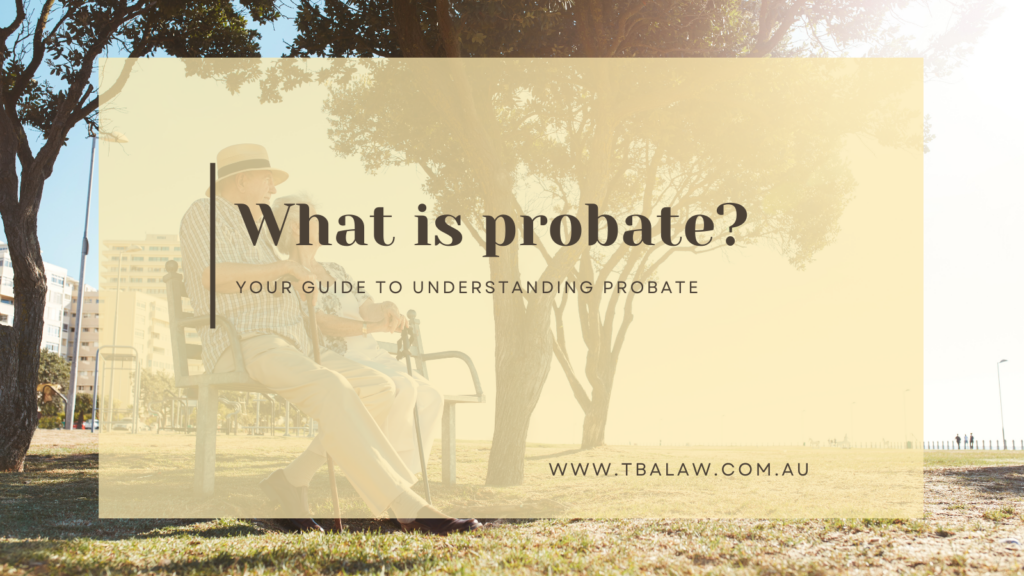What is probate?
I’m going to talk about what probate is and what a grant of probate is, because I think people have a general idea that it’s something that’s needed after someone’s passed away, but they don’t actually understand what it is or how much it costs.
Probate is the legal process of administering an estate. The executor applies to the Supreme Court, sends the will down, sends an inventory of the assets and says, “Here’s the valid will. Here’s what the assets are. Please grant me authority to administer the estate.”
When there is a valid will and someone has passed away, the executives have a duty to administer the estate. Some assets cannot be administered without a grant of probate. A grant of probate is not always required when someone has passed away.

The probate process is essentially a court-sanctioned procedure for distributing the assets of someone who has died. It used to be a lovely piece of parchment with a big red seal on it and now it’s just a PDF document that gets emailed to us, but essentially it’s a formal document from the Supreme Court saying, “Yes, you as the executor are allowed to administer this will and deal with these estates that need to be dealt with.”
When someone dies without leaving a will, the process is called getting letters of administration. Letters of administration are grants of representation to someone who can administer an estate when someone passes without a will. And then there’s letters of administration with a willer next. When there is a will, and it’s valid in some aspects (for example, the executors appointed in that will might not be able to act), then another person steps forward to administer the will and applies to the court: “Here’s a will. The executor can’t do it; I’m the next best option to administer the will. Can I do it?”
A grant of probate is a formal process, really just getting permission to deal with assets that need to be dealt with under a will. As I said, the same thing goes when there is no valid will. Its called letters of administration instead. So a grant of representation can be issued in that case. Likewise, when there is a valid will and no other problems preventing the executor from administering the estate, a grant of representation can be issued to the person who is next in line to apply for a grant of representation.
As I said, not everyone who passes away needs a grant of representation. Some states have simplified procedures. For example, in Victoria, court fees are relatively cheap compared to other states. For example, in New South Wales you pay a percentage of the estate to the court to get that grant. Its still a small percentage but on a sliding scale. In Victoria we also have a sliding scale but it’s fairly low. A smaller estate pays about $60 as a court fee, $300 and then about $1000 are the sliding scale fees depending on the size of the estate. So it’s not a tax it’s just a court fee and they’re not huge.
If you need more information, get in touch with our team at 1300 043 103 or send an email to admin@tbalaw.com.au. Our solicitors will be able to tell you what you need to do and how you need to go about doing it, and how much it might cost you in the process as well so you can make an informed decision.






Leave A Comment